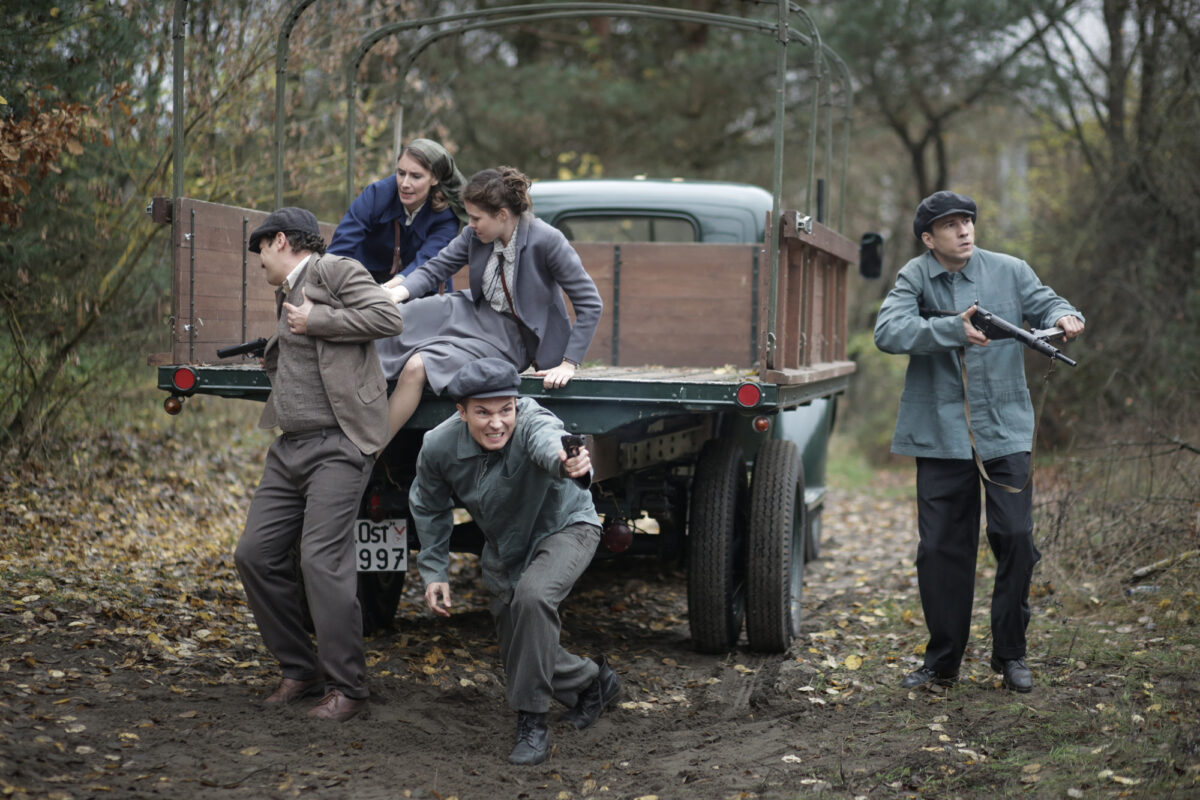Nations are sometimes compelled to fight for their very existence. Since the October 7 massacre of 1,400 Israelis and foreigners at the hands of Hamas, Israel has been fighting an existential war against a cruel enemy in the Gaza Strip. It is a war that could change the political landscape of the Middle East.
Poland faced a similar challenge in 1939, when Germany brutally violated its sovereignty in an invasion that brought death and destruction to its citizens, particularly its 3.3 million Jews, and set off World War II.
The savage Nazi occupation of Poland, where much of the Holocaust took place, is at the core of a first-class Polish television series, Wartime Girls, which is back for a fourth season and will be available on the ChaiFlicks streaming platform starting on November 7.
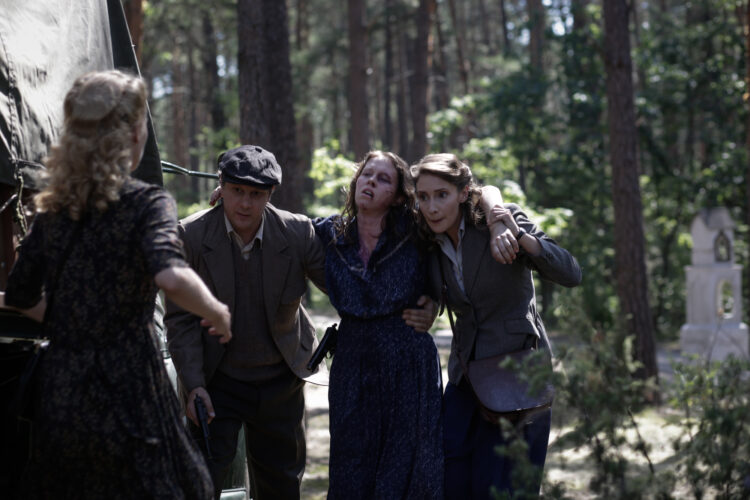
Starring a stellar cast of Polish and German actors, it has been successively renewed because of its plausible plot, authentic locales and sterling production values.
The title refers to three young Polish women from different social and religious backgrounds who join forces to fight Nazi tyranny and oppression.
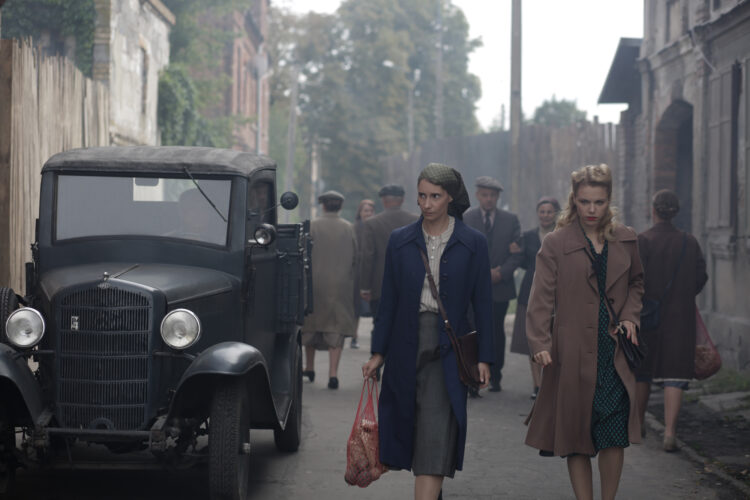
They are Marysia (Aleksandra Pisula), a refined Jewish musician; Ewa (Vanessa Aleksander), a blonde bombshell from a criminal family, and Irka (Marta Mazurek), a demure nursing student. They are members of the underground Home Army, which battled the Nazis in relentless fashion from almost the moment the German army invaded Poland in a ferocious act of aggression.
Their German adversaries include Martin von Schnitz (Mickey Hardt), a wily high-ranking Gestapo officer, and Margarethe von Lesein (Katrin Buhring), a cold-hearted major in the Abwehr, the German intelligence service.
During the course of 13 episodes, Marysia, Ewa and Irka are called upon to perform a variety of espionage operations. They hunt down a German soldier who callously shot a boy picking up loose coals along a railway track. They ambush a German patrol, killing a senior army officer. They assassinate a German officer. These are among the dangerous tasks they carry out, risking their lives on each mission.
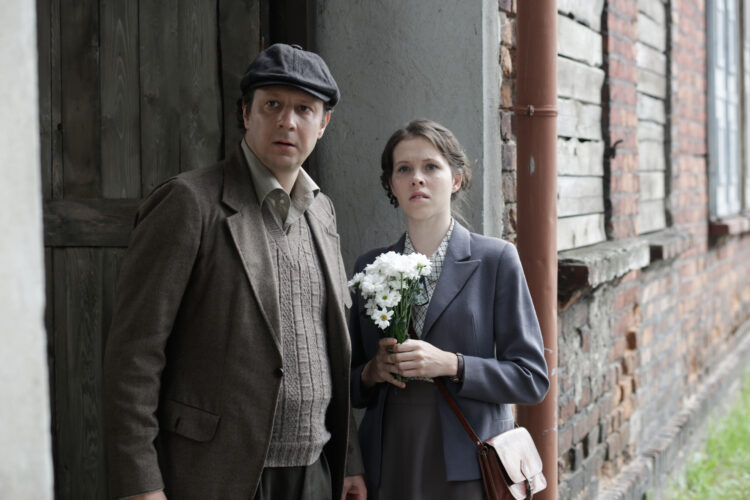
Amid the violence and the degradation, there are romantic interludes. Irka falls in love with an older man who selflessly saves her life. Marysia manages to spend precious time with her boyfriend, Andrzej (Sebastian Jasnoch), a courageous physician. Ewa, having grown apart from her commander and fiancé, Witek (Michal Czenecki), finds herself increasingly attracted to Sonka (Mateusz Rzezniczak), a boxer who seems at first glance intellectually disengaged from the turbulence gripping Poland.
Not every German in this series is portrayed negatively. Karl Meier (Maciej Brzoska), a photo journalist who works for Joseph Goebbels’ Ministry of Propaganda and knew Sonka before the war, grows close to Marysia and reveals state secrets.
There are several fleeting references to Polish Jews.
Marysia meets her sister, Zosia, in a convent, where she has gone into hiding. It is raided by German soldiers in search of Jewish children. When Marysia’s comrade-in-arms, Karolina (Maja Szopa), and her companion find refuge in a farmer’s barn, his wife provocatively asks, “Are you Jews?”
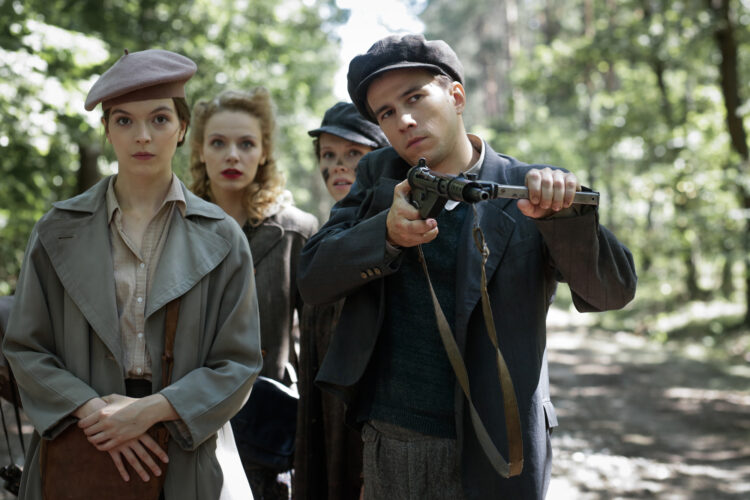
In another scene, the wife of a farmer refuses to help a Jewish girl. “I don’t want that child, she’s Jewish,” she blurts out.
And in a vignette, a viewer discovers that Karolina’s brother is concealing a Jewish couple, Chaim and Rebecca, in their mother’s mansion in the countryside.
There are also passing references to the Blue Police, which collaborated with the Germans, the Auschwitz-Birkenau extermination camp, and the Nazi campaign to abduct racially acceptable Polish children for adoption in Germany.
Wartime Girls unfolds at a brisk pace and is usually captivating. As television shows go these days, it is head and shoulders above nearly all its competitors.
